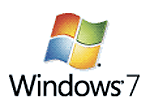Via ZDnet’s Ed Bott, interesting news: Microsoft has ended “Office Genuine Advantage,” a bit of copy protection which required you to show your copy of Office was legit before you could get certain downloads.
Tag Archives | Copy Protection
Copy Protection: A Good Sign (Maybe) for Consumers
Don’t get too too excited just yet, but a New Orleans circuit judge has ruled that General Electric didn’t violate the Digital Millennium Copyright Act when it worked its way around the security dongles on some power supplies it owned in order to fix the power supplies. The judge says that GE is in the clear because the action it was trying to undertake–fixing its own property–isn’t illegal.
Until now, the notion has been that any attempt to override copy protection violates the DMCA–which means that the DMCA itself essentially overrides the notion that consumers have the right to make copies of content they’ve bought for personal use. Here’s hoping that this new ruling proves to be influential; the fact that a judge thinks it’s okay to defeat copy protection in certain circumstances is kind of shocking, in a good way….
[RELATED GOOD NEWS: The Copyright Office has declared that it’s legal to jailbreak and unlock phones, as well as override other security measures imposed on consumer electronics gadgets in certain circumstances.]
No comments
Buy Movies Once, Watch Them Anywhere. Unless It's a Disney Movie or You Own Any Apple Devices
The Digital Entertainment Content Ecosystem, a consortium of sixty Hollywood content owners, hardware makers, and software companies I wrote about back in January, has given a name to its theoretically-universal copy protection scheme, which aims to let you pay for a piece of content once and then watch it on an array of gadgets. It’s called UltraViolet. It if works like it’s supposed to work, it could be neat–but it’ll have to overcome the tendency of ambitious copy-protection systems to be confusing, annoying, and/or unreliable. And there’s still one major gotcha standing in the way of its big dreams: Disney and Apple aren’t on board.
2 comments
Judge Nixes Windows Genuine Advantage Class-Action Suit
As Computerworld’s Gregg Keizer has reported, a U.S. District Judge has eliminated the possibility that Microsoft might be liable for hundreds of millions of dollars of damages in class-action suits over its Windows Genuine Advantage copy protection and the method by which it was pushed onto XP machines back in 2006. I’m neither a lawyer nor a instinctive fan of class-action cases, so I’m okay with the news. (But I will say that there was a lengthy period during which WGA and Microsoft’s implementation thereof was an unreliable, vaguely insulting instrument that Microsoft willingly used against paying customers. The current version both works better and involves fewer instances in which people who pay for their software are forced to jump through hoops.)
One comment
Buy a Movie Once. Watch It Anywhere and Everywhere, Forever?
 It sounds…well, not too good to be true, but pretty darn neat, at least in theory. The New York Times’ Brad Stone is reporting that most of the big Hollywood studios and a bunch of major tech companies are planning to use this week’s Consumer Electronics Show in Las Vegas to unveil the Digital Entertainment Content Ecosystem, a plan to let folks who buy a movie or TV show in one format, and then get easy access to it in other formats on other devices.
It sounds…well, not too good to be true, but pretty darn neat, at least in theory. The New York Times’ Brad Stone is reporting that most of the big Hollywood studios and a bunch of major tech companies are planning to use this week’s Consumer Electronics Show in Las Vegas to unveil the Digital Entertainment Content Ecosystem, a plan to let folks who buy a movie or TV show in one format, and then get easy access to it in other formats on other devices.
End result: If you buy the Blu-Ray of Jaws, you might also get the right to watch it on your Internet TV box, or download it to a media player, courtesy of a digital “locker” in the sky that keeps track of what you’ve paid for. What you wouldn’t have to do is hand over full price to Hollywood each time you want to get a movie for a new gizmo.
When I think of the hassle and expense of re-repurchasing video in new forms, I always come back to the fact that I’ve bought Pinocchio from Disney so many times over the past quarter century that I’ve lost track–as a VHS tape, as a DVD (more than once, in multiple remasterings), on Blu-Ray, and as an iTunes download. DECE isn’t going to let me stop buying this particular movie, for the simple reason that Disney is the only Hollywood biggie that isn’t on board. As Stone says, it’s supporting a similar system called KeyChest. Rumor has it that it could roll out that digital locker in collaboration with Apple, which also isn’t on the DECE team.
As I’ve said many times, I’m not opposed to copy protection on religious grounds–it’s just that nearly every implementation of it devised to date has been either a minor hassle or a major one, with no benefit to those of us who pay for our content. DECE and/or KeyChest could make copy protection far more palatable–I’d be much more inclined to plunk down money for a Blu-Ray if what I was buying was not a physical shiny disc but the right to watch that movie where I pleased, on the device of my choice. And no, copies of movies that aren’t locked up with copy protection at all don’t accomplish the same thing–they’re in one format that’s not compatible with every gizmo, and they’re too humongous to shuffle around between all your devices without a lot of effort.
I’m not giddy over any of this yet–a lot of details remain unknown. Is Warner Bros. really willing to sell me a movie one last time, then give me access to it in a multitude of formats for the next few decades, or can it use DECE to parcel out access in a parsimonious fashion that’s not that exciting? Will pervasive Internet access render DECE unnecessary by providing a streaming version of movies that works perfectly on gadgets of all sorts? What happens if DECE isn’t as successful as its backers hope? (I’m instinctively skeptical of anything that involves using servers to unlock access to content–when the companies maintaining those servers lose interest, they have a tendency to shut them down and thereby cut off stuff that consumers thought they’d “bought.”)
All in all, though, I’m glad the entertainment industry is trying this. It’s surely better than doing very little to give movie fans an incentive to invest in new, legal copies of content they already own, which has usually been the industry’s strategy so far…
No comments
Nokia Steps Back, Delays Music Service in U.S.
 With its “Comes With Music” music service getting a not-so-hot reception in the countries where it has already been launched, Nokia has decided to delay the launch of the product here in the US until at least 2010. Previously it had indicated it was on track for a launch sometime this year.
With its “Comes With Music” music service getting a not-so-hot reception in the countries where it has already been launched, Nokia has decided to delay the launch of the product here in the US until at least 2010. Previously it had indicated it was on track for a launch sometime this year.
While the service seems to be doing decently in the developing markets it’s been introduced in, it’s underperformed everywhere else.
Obviously, the elephant in the room–iTunes–has a lot to do with Nokia’s woes. There’s also a good chance that many potential smartphone buyers just don’t associate Nokia with music.
It’s kind of a shame considering that Nokia’s strategy to attract customers is somewhat different. Essentially, for about 12-18 months after purchasing the handset you can download as much music as you want at no extra charge (thus the offering’s name).
A delay is really not that bad when you think about it. It’s important that Nokia sells the service effectively, especially considering the downloaded music is copy protected. Also, it needs a carrier to subsidize the cost of the device, since it’s pricey when purchased in unlocked form.
2 comments
RealDepressing: RealDVD Loses a Round in Court
 The New York Times’ Brad Stone is reporting that U.S. Federal District Court Judge Marilyn Hall Patel has ruled against RealNetworks in the lawsuit filed by the movie studios against RealDVD, its software for copying DVDs to your hard drive. Judge Patel granted the studios a preliminary injunction against Real selling the software, which seems like kind of a formality given that she stopped Real from selling it almost as soon as it went on sale last September.
The New York Times’ Brad Stone is reporting that U.S. Federal District Court Judge Marilyn Hall Patel has ruled against RealNetworks in the lawsuit filed by the movie studios against RealDVD, its software for copying DVDs to your hard drive. Judge Patel granted the studios a preliminary injunction against Real selling the software, which seems like kind of a formality given that she stopped Real from selling it almost as soon as it went on sale last September.
RealDVD isn’t a tool for pirates. Actually, it adds an extra layer of copy protection to prevent you from doing anything except copying a movie to one hard drive for viewing on one computer at a time. (You can’t even put the movies on a shared drive to watch them from multiple computers on one network.) The court is apparently inclined to look askance at even a fundamentally hobbled (albeit easy-to-use) DVD copier.
Meanwhile, tools like Handbrake let large numbers of people copy DVDs without any of RealDVD’s measures against sharing the digital copies with friends or tossing them onto BitTorrent for the world to download. I also remain unclear on why Telestream’s Drive-in–which is, basically, a Mac version of RealDVD except that it also comes in a multi-user version–is still around when RealDVD is apparently too dangerous to be let onto the market while Real waits for a final ruling. Maybe it has something to do with RealNetworks being a relatively large company that might actually succeed in getting ordinary folks to use its software?
Meanwhile, the RealDVD site lives on in forlorn limbo, complete with a woman gamely smiling on the home page and a guided tour of the product. The site says the app is “temporarily unavailable” and that Real “will continue to work diligently to provide you with software that allows you to make a legal copy of your DVDs for your own use.” I hope that means that the company will soldier on with both this case and the countersuit it filed against six Hollywood studios on antitrust grounds. Whether or not you ever use RealDVD–or even if its limitations would drive you a little bonkers–any victories it scored in court would be great news for consumers. And if it loses, the message will be that there are absolutely no circumstances under which law-abiding consumers can make a copy of a DVD they’ve paid for in order to enjoy it in a new way.

12 comments
We’re From Microsoft, and We’re Here to Help You
 Microsoft’s Alex Kochis has blogged about this week’s compromising of a Lenovo key for Windows 7 activation, which allowed hackers to activate unauthorized copies of Windows 7. He says that Lenovo’s customers won’t be affected when they buy Windows 7 PCs, but that Microsoft will “seek to alert” people running copies of Windows 7 that have been hacked with the leaked key.
Microsoft’s Alex Kochis has blogged about this week’s compromising of a Lenovo key for Windows 7 activation, which allowed hackers to activate unauthorized copies of Windows 7. He says that Lenovo’s customers won’t be affected when they buy Windows 7 PCs, but that Microsoft will “seek to alert” people running copies of Windows 7 that have been hacked with the leaked key.
Kochis also says this:
Our primary goal is to protect users from becoming unknowing victims, because customers who use pirated software are at greater risk of being exposed to malware as well as identity theft. Someone asked me recently – and I think it’s worth noting here — whether we treat all exploits equally in responding to new ones we see. Our objective isn’t to stop every “mad scientist” that’s out there from dabbling; our aim is to protect our customers from commercialized counterfeit software that impacts our customers’ confidence in knowing they got what they paid for. That will continue to be our focus as we continue to evolve our anti-piracy platforms, and respond to new threats that we see emerge in the future.
Really? The primary goal of Microsoft’s copy-protection technologies is to prevent people from unwittingly buying pirated copies of Windows? The impact that piracy has on Microsoft’s wallet is apparently a secondary issue–one that’s not even worth mentioning in this post or on this page about the “Windows Genuine Advantage” program.
As I’ve often said, Microsoft is entitled to protect its intellectual property, and nobody is entitled to get Windows without paying for it. I buy the idea that one reason to avoid using pirated copies of Windows–either knowingly or unknowingly–is because it can be dangerous. And I acknowledge the fact that Microsoft has done a good job of fixing earlier aspects of activation that caused hassles for paying customers.
But I still don’t understand why all discussion of Windows Activation and other Microsoft anti-piracy technologies can’t begin with the honest disclosure of one simple fact: They exist to prevent people from stealing Microsoft software. If Microsoft took that approach rather than devoting 98% of its communications about copy protection to insisting that they exist mostly to help Microsoft customers, it would make me take its efforts more seriously, not less so.
With Windows 7, Microsoft is planning to rename the patronizing “Windows Genuine Advantage” program to the much more straightforward Windows Anti-Piracy Technology. Wouldn’t that provide a good opportunity to usher in a new era of grownup-to-grownup communications about its copy protection efforts?
3 comments
Jeff Bezos: Amazon’s 1984 Actions Were “Stupid”
 Amazon’s decision to remotely delete pirated copies of George Orwell’s 1984 and Animal Farm from customers’ Kindle e-readers and refund their money was stupid, thoughtless, and self-inflicted. That’s not an irate blogger talking–it’s Amazon.com founder Jeff Bezos, who indulged in some serious self-flagellation at the company’s forums, as reported by TechCrunch’s MG Siegler.
Amazon’s decision to remotely delete pirated copies of George Orwell’s 1984 and Animal Farm from customers’ Kindle e-readers and refund their money was stupid, thoughtless, and self-inflicted. That’s not an irate blogger talking–it’s Amazon.com founder Jeff Bezos, who indulged in some serious self-flagellation at the company’s forums, as reported by TechCrunch’s MG Siegler.
Bezos’s mea culpa is one of the most refreshingly humble statements I’ve ever seen from a tech company CEO. But it’s pretty much standard that examples of major tech companies making boneheaded DRM-related decisions are followed up by backpedaling and apologies. If other companies remembered that, they’d make fewer boneheaded decisions in the first place and spend less time apologizing. Sounds like a win for everybody involved.
Here’s Bezos’s post in its entirety:
This is an apology for the way we previously handled illegally sold copies of 1984 and other novels on Kindle. Our “solution” to the problem was stupid, thoughtless, and painfully out of line with our principles. It is wholly self-inflicted, and we deserve the criticism we’ve received. We will use the scar tissue from this painful mistake to help make better decisions going forward, ones that match our mission.
As far as I know, Amazon hasn’t said what it intends to do in future instances of publishers selling pirated books through Kindle–a situation that’ll surely happen again, and one which copyright holders have a right to be upset about. But maybe part of the solution lies in figuring out better measures to prevent the stolen goods from getting into Amazon’s virtual bookstore in the first place.
4 comments
Kindle DRM Follies
Gear Diary has an illuminating, alarming post about the DRM for Amazon’s Kindle e-books:
“How do I find out how many times I can download any given book?” I asked. He replied, “I don’t think you can. That’s entirely up to the publisher and I don’t think we always know.”
I pressed — “You mean when you go to buy the book it doesn’t say ‘this book can be downloaded this number of times’ even though that limitation is there?” To which he replied, “No, I’m very sorry it doesn’t.”
For what it’s worth, I’ve read Kindle books on three Kindles and two iPhones to date, and have never run into any DRM snafus.
